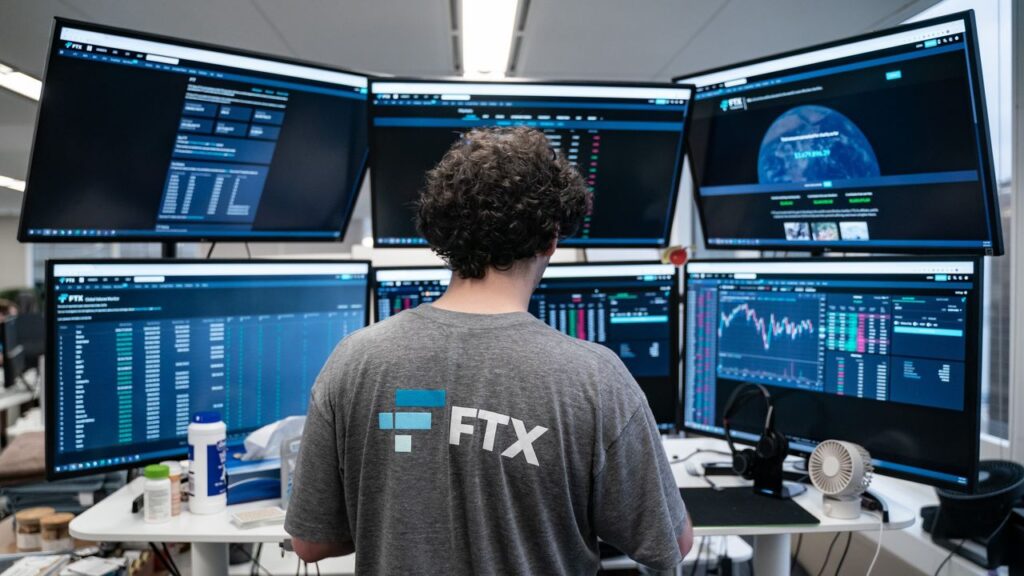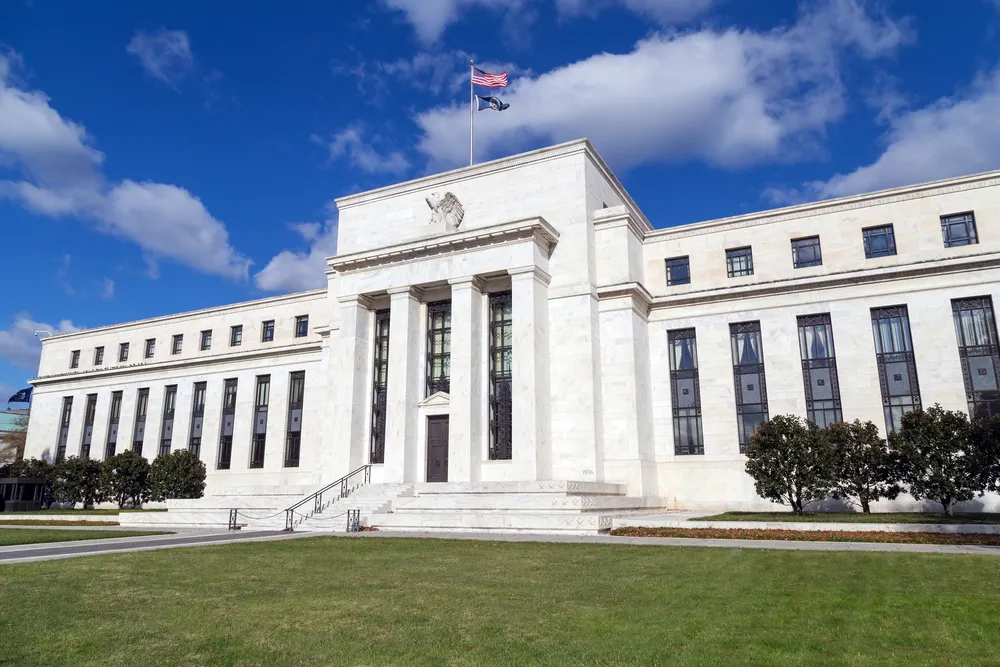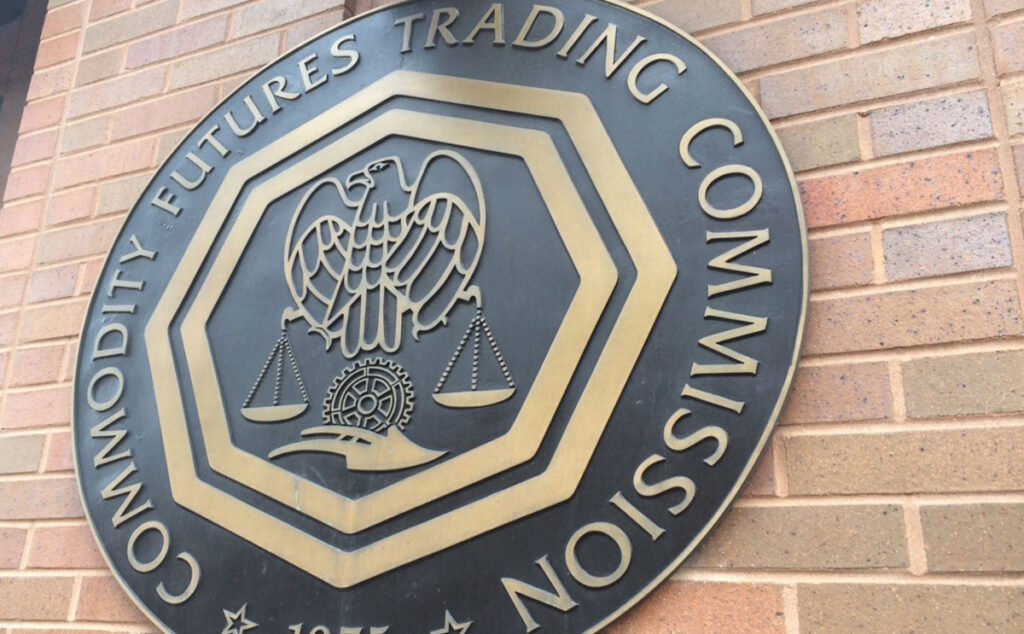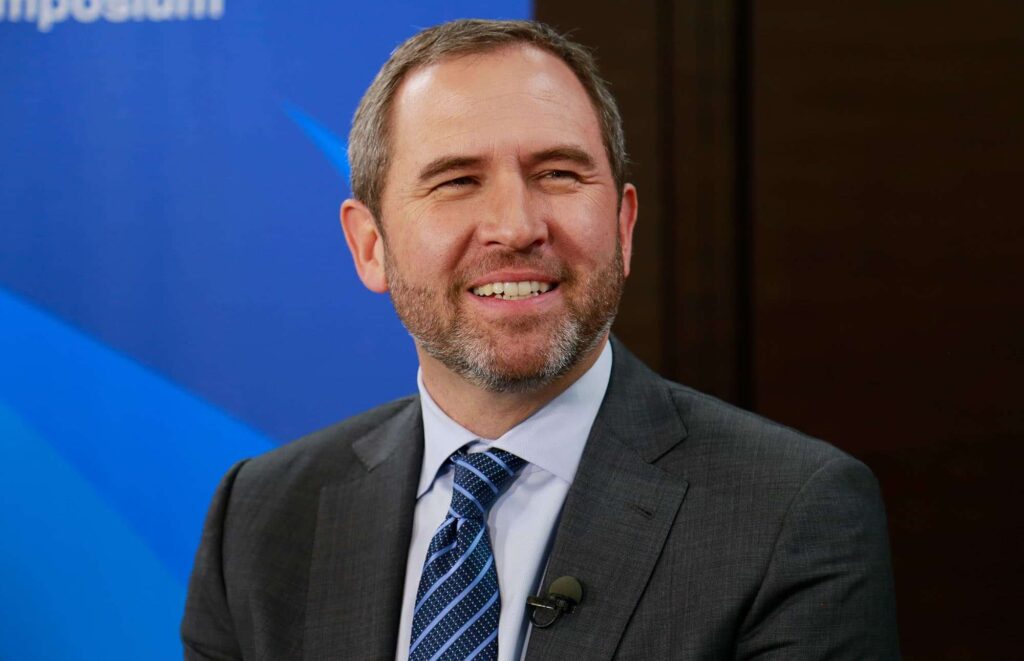The trial of Avraham Eisenberg, the individual accused of exploiting Mango Markets for $116 million, has been postponed until April 8, 2023.
Originally scheduled for December 4, the trial delay was granted by district court Judge Arun Subramanian on November 3, following a successful motion for a continuance filed by Eisenberg’s legal team.
Eisenberg’s attorneys cited various factors that affected their trial preparations, leading to the motion for a continuance. Judge Subramanian approved the motion despite opposition from United States prosecutors.
Additionally, he ordered both the prosecutors and Eisenberg’s lawyers to submit a revised schedule for pretrial motions and submissions by November 7.
Eisenberg, who confessed to his involvement in the Mango Markets exploit, pleaded not guilty to three criminal counts, including commodities fraud, commodity manipulation, and wire fraud in June.
The defense explained in their motion that they required additional time to review the extensive discovery materials provided by U.S. prosecutors, which they received on a rolling basis.
They also pointed out that they had lost valuable preparation time when Eisenberg was unexpectedly transferred to the Metropolitan Detention Center (MDC) in Brooklyn on October 26.
READ MORE: NIST and Department of Commerce Launch AI Safety Institute Consortium
Due to the transfer, Eisenberg was unable to access the discovery materials and other essential legal paperwork related to the trial.
The defense attorneys expressed concerns that the move to MDC would severely hinder their access to Mr. Eisenberg, making it challenging to consult with their client effectively.
The MDC was the same facility where former FTX CEO Sam Bankman-Fried had returned after being convicted on seven fraud-related charges on November 2.
Eisenberg faced additional charges from the Securities and Exchange Commission on January 20, accusing him of manipulating the Mango Markets governance token, MNGO, by obtaining “massive loans” against inflated collateral and depleting Mango’s treasury of approximately $116 million. Eisenberg was arrested in Puerto Rico on December 27.
Eisenberg had publicly confessed to the exploit on October 15, 2022, maintaining that his actions were legally sound.
He initially returned $67 million to Mango Markets’ decentralized autonomous organization as part of a bounty agreement.
However, the Mango Markets team later filed a lawsuit against Eisenberg, seeking $47 million in damages plus interest.
On November 3, BTC Digital, a China-based company, announced a significant expansion of its Bitcoin mining operations by acquiring 220 new Bitcoin mining units.
This strategic move has boosted their total machine count to 2,174, with a formidable computing power of over 230 petahashes per second (PH/s).
These newly acquired mining units are expected to be fully operational by the end of the month.
The acquisition was executed through agreements with “two unaffiliated third parties,” involving the procurement of Bitmain Antminer S19j Pro units.
In exchange for these mining units, BTC Digital issued 276,572 shares of its ordinary company stock, with a total valuation of $968,800.
It’s worth noting that BTC Digital underwent a name change in August, transitioning from Meten EdtechX Education Group to better align with its current business operations.
BTC Digital is described on the Nasdaq-listed company’s website as a prominent provider of general English language training services in China.
The company boasts a network of learning centers across the nation and offers both online and metaverse-based training programs.
READ MORE: Solana Ecosystem Bounces Back Stronger After FTX Collapse
However, there have been indications, such as a Reddit thread that emerged on November 11, 2022, suggesting that the company abruptly halted its teaching operations.
In late 2021, BTC Digital ventured into Bitcoin mining by deploying 1,482 miners, as mentioned in an undated profile on its website.
These mining farms were situated in the American states of Pennsylvania and Tennessee and operated by third-party entities. CEO Alan Peng expressed his outlook on the recent expansion, stating, “With the recent purchases and our plan to further increase the number of mining machines, we aim to continue improving our financial conditions as well as maximizing value for our shareholders.”
BTC Digital’s market capitalization stood at $3.1 million as of September 28, following a low point of $1.79 per share on September 26.
After rebranding from METX to BTCT on September 28, the company experienced increased trading activity, with shares currently valued at $3.66 at the time of this writing.
It’s worth noting that China initiated a crackdown on domestic Bitcoin mining activities in the latter half of 2021, although the efficacy of these efforts remained partially uncertain.
Advisers working with the bankrupt crypto exchange, FTX, have been cooperating with the Federal Bureau of Investigation (FBI), sharing customer transaction and account data, as revealed in court documents obtained by Bloomberg.
In response to subpoenas issued by multiple FBI field offices over the past several months, FTX consultants have provided law enforcement authorities with records of specific customer trades conducted on the crypto exchange during its bankruptcy proceedings.
The disclosed FBI requests are detailed in billing records associated with Alvarez and Marsal, a consultancy firm acting as financial advisers for FTX.
This cooperation involved the extraction of information related to certain customers’ trades for FBI offices located in Portland, Philadelphia, Oakland, Minneapolis, and Cleveland.
The billing records do not offer insights into the nature of the FBI’s investigation or the identity of the specific target involved, although one of the records does mention the existence of a grand jury subpoena.
In a formal court filing, Alvarez and Marsal acknowledged sharing transaction data from FTX’s cloud computing provider in September, responding to a subpoena from the FBI’s Philadelphia office.
In July, they investigated customer accounts and transactions in accordance with a request from the FBI’s Oakland office.
READ MORE:NIST and Department of Commerce Launch AI Safety Institute Consortium
Additionally, in August, the consultancy firm extracted customer information pertaining to specific transactions, complying with a subpoena from the FBI’s Portland office.
The costs associated with these services provided by advisers will ultimately be borne by FTX customers. As per Bloomberg’s report, during the months of July, August, and September, two advisers billed more than $21,000 for their FBI-related services.
In total, Alvarez and Marsal have accrued nearly $100 million in fees from FTX since November 2022, as per court records.
These fees will be deducted from the recoveries intended for FTX customers.
Notably, FTX’s new CEO, John J. Ray III, recently unveiled a potential ray of hope for the exchange’s customers.
He announced that, thanks to a proposed settlement between FTX creditors and debtors, customers could expect to recoup over 90% of their assets by the close of 2024, offering a glimmer of optimism amidst the tumultuous bankruptcy proceedings.
On November 3, 2023, the nonfungible token (NFT) marketplace OpenSea made a significant announcement, revealing its decision to undergo a restructuring that involved laying off employees.
Devin Finzer, the co-founder and CEO, shared this news on X (formerly Twitter) and explained that the company was embarking on the journey of OpenSea 2.0 with a more streamlined team.
OpenSea originally emerged in 2017, a time when NFTs were still an emerging innovation. Functioning on a business model reminiscent of platforms like eBay and Etsy, OpenSea conducted transactions primarily in Ether (ETH).
Notably, this move followed a previous round of layoffs in July 2022, when OpenSea had cited the challenges of the crypto winter, resulting in a reduction of their workforce from 230 employees.
A spokesperson from OpenSea conveyed their gratitude for the contributions of departing employees and disclosed that the company was committed to offering comprehensive support, including financial and non-financial assistance.
This restructuring would have an impact across all functions of the organization, affecting approximately 50% of its workforce. Of note, the spokesperson emphasized that there would be a reduction in the number of middle managers.
READ MORE:Solana Ecosystem Bounces Back Stronger After FTX Collapse
Departing employees would receive four-month severance packages, accelerated equity vesting, and six months of continued healthcare and mental healthcare support.
The NFT market landscape has evolved significantly since its peak in 2021.
While collectible NFTs once dominated, new use cases such as tokenizing assets, managing identity, and storing legal documents have gained popularity, partly due to the decline in the value of many collectibles.
To navigate these changes and maintain its leading position, OpenSea is contemplating a strategic shift toward becoming a Decentralized Autonomous Organization (DAO) and issuing a governance token to its users, a move that could potentially be valued in the tens of billions.
Despite facing community backlash in August due to the retirement of its operator filter, OpenSea remains committed to its existing products while actively testing OpenSea 2.0 in the public domain.
The company is also actively hiring, with 12 open positions listed on LinkedIn, offering competitive starting salaries ranging from $90,000 to $270,000.
As OpenSea embarks on this new chapter, it aims to adapt to the evolving NFT landscape and continue serving its user base effectively.
The trial of Avraham Eisenberg, the individual accused of exploiting Mango Markets and siphoning off $116 million, has been postponed until April 8, 2023, following a successful motion by his legal representatives. Originally scheduled for December 4, the trial was delayed due to various factors affecting Eisenberg’s trial preparations.
The motion for a continuance was presented to District Court Judge Arun Subramanian on November 2 and was granted, as confirmed in a court filing on November 3.
United States prosecutors opposed the motion for continuance, but their efforts were unsuccessful.
READ MORE: 3 Best Crypto & Blockchain PR Agencies
In addition to granting the continuance, Judge Subramanian instructed both U.S. prosecutors and Eisenberg’s legal team to submit a revised schedule for pretrial motions and submissions by November 7.
Eisenberg, who had previously confessed to his involvement in the Mango Markets exploit, pleaded not guilty to three criminal counts related to commodities fraud, commodity manipulation, and wire fraud in June.
In their motion, Eisenberg’s attorneys cited the need for additional time to review the extensive discovery materials provided by U.S. prosecutors.
They explained that the government had been continually delivering substantial evidence, which they were still in the process of analyzing and discussing with their client.
READ MORE: Solana Ecosystem Bounces Back Stronger After FTX Collapse
Furthermore, the legal team faced an unexpected setback when Eisenberg was transferred to the Metropolitan Detention Center (MDC) in Brooklyn on October 26.
This move prevented him from accessing the discovery materials and other legal documents pertinent to his trial.
The attorneys argued that the relocation would significantly impede their ability to consult with Eisenberg.
It’s noteworthy that the MDC was also the prison where former FTX CEO Sam Bankman-Fried returned after being convicted on all seven fraud-related charges on November 2.
Additionally, the Securities and Exchange Commission had charged Eisenberg on January 20, alleging that he manipulated Mango Markets’ governance token, MNGO, by securing substantial loans against inflated collateral, leading to the depletion of Mango’s treasury.
Eisenberg was arrested in Puerto Rico on December 27, three weeks prior to the SEC’s charges.
Eisenberg publicly admitted to the exploit on October 15, 2022, contending that his actions were legally justified.
Initially, he returned $67 million to Mango Markets’ decentralized autonomous organization as part of a bounty arrangement.
Nevertheless, the Mango Markets team subsequently filed a lawsuit against Eisenberg, seeking $47 million in damages plus interest.
The United States Commodity Futures Trading Commission (CFTC) is taking a closer look at how companies handle customer assets, particularly in the context of futures commission merchants (FCMs) and derivative clearing organizations (DCOs).
The CFTC has recently proposed amendments to the rules governing these entities, with a specific focus on enhancing the protection of customer funds.
Presently, these companies are required to invest customer funds in highly liquid assets, but these rules don’t adequately address the unique operational model of LedgerX.
LedgerX operates as a DCO, but it stands out by establishing direct connections with clients, departing from the traditional intermediary role played by FCMs.
This unique approach has caught the attention of CFTC Commissioner Kristin Johnson, who has expressed concerns that the current regulatory framework is falling behind the rapidly evolving industry.
Previously affiliated with FTX and now a part of Miami International Holdings, LedgerX operates in a distinct sector by providing direct client access, a departure from established industry conventions.
What distinguishes LedgerX further is its effort to settle cryptocurrency transactions directly for clients, rather than involving intermediaries.
READ MORE: SEC Seeks Summary Judgment Amidst Controversy Over Terraform Labs’ Alleged Violations
The company has obtained several CFTC registrations and implemented enhanced consumer safeguards, including asset segregation.
Commissioner Johnson is advocating for a revised regulatory framework that would ensure uniform protection for retail clients, whether they trade through intermediaries or directly with non-intermediated DCOs like LedgerX.
This call for action coincides with a 75-day window for public feedback on the CFTC proposal.
This period of open dialogue holds the potential to guide the CFTC in addressing the regulatory deficiencies highlighted by Commissioner Johnson.
It is incumbent upon the CFTC to ensure that regulatory measures remain in sync with the constantly changing derivatives market.
This is vital not only to protect the interests of retail customers but also to maintain a level and equitable playing field for all market participants.
In an industry marked by innovation and evolution, regulatory adaptation is essential to safeguard the integrity and stability of financial markets.
On November 4th, Bitcoin was on a quest to surpass the $35,000 mark as weekend trading activities continued to exhibit upward consolidation trends.
Market data from Cointelegraph Markets Pro and TradingView indicated that BTC’s price support remained resilient even after the closure of Wall Street trading.
Despite experiencing intraday lows the previous day, Bitcoin managed to maintain its short-term price floor at $34,000, effectively passing the test.
This performance had traders eagerly anticipating potential upward movements, making Bitcoin a preferred choice among investors.
In a recent video update, the well-known trader Credible Crypto highlighted the likelihood of Bitcoin surpassing the $35,000 threshold as the next logical step.
Credible Crypto employed Elliott Wave analysis and identified three crucial price levels to monitor: $34,314, $34,714, and $35,119, representing the lower limit, midrange point, and upper limit of the expected range.
Credible Crypto emphasized the importance of successfully reclaiming the midrange level, indicating a shift from a recovery based on range lows to one based on midrange levels.
READ MORE NIST and Department of Commerce Launch AI Safety Institute Consortium
This approach was bolstered by robust trading volume, which Credible Crypto described as a “significant event,” along with a general reluctance to sell at the current price levels.
As traders contemplated the weekend and the upcoming weekly close, Daan Crypto Trades drew attention to the proximity of the CME Bitcoin futures closing price on November 3rd.
CME futures “gaps” had historically been closed in line with BTC’s spot price, with a notable exception near $20,000. This anomaly contributed to bearish predictions of a potential return to that price level in the months ahead.
Additionally, another trader named Jelle highlighted the significance of the 200-period exponential moving average (EMA) as a critical support line on 1-hour timeframes.
Crypto Tony, on the other hand, shared his strategy with subscribers, indicating that he would consider a hedge short position if Bitcoin dropped below $34,100, while still maintaining his long position as long as Bitcoin held above $33,000.
In summary, Bitcoin was aiming to surpass the $35,000 mark, with traders closely monitoring key price levels and indicators to determine the cryptocurrency’s future trajectory amidst the ongoing market consolidation.
The United States National Institute of Standards and Technology (NIST) and the Department of Commerce are actively seeking participants for their newly-established Artificial Intelligence (AI) Safety Institute Consortium.
This consortium aims to enhance the safety and reliability of AI systems and invites interested parties to join in this critical endeavor.
In a recent announcement made on November 2nd, NIST unveiled the formation of the AI consortium through a publication in the Federal Registry.
The announcement also officially solicited applications from individuals and organizations possessing the necessary qualifications.
According to the NIST document, this initiative represents the initial phase of NIST’s collaboration with non-profit organizations, universities, government agencies, and technology companies to address the challenges associated with AI development and deployment.
The primary objective of this collaboration is to formulate and implement precise policies and metrics that prioritize a human-centered approach to AI safety and governance.
READ MORE: SEC Issues Subpoena to PayPal Over PYUSD Stablecoin
Participating members of the consortium will be tasked with a range of responsibilities, including the development of measurement tools, benchmarking systems, policy recommendations, red-teaming exercises, psychoanalysis, and environmental assessments, all geared towards enhancing AI safety.
These efforts have been spurred by a recent executive order issued by U.S. President Joseph Biden.
The executive order established six new standards for AI safety and security, although it appears that none of these standards have yet been formally enacted into law.
While European and Asian nations have taken proactive steps in implementing policies governing AI development with a focus on user and citizen privacy, security, and potential unintended consequences, the United States has lagged behind in this regard.
President Biden’s executive order represents a positive stride towards the formulation of specific policies governing AI within the U.S., and the establishment of the Safety Institute Consortium underscores this commitment to AI safety.
However, there is still a lack of clarity regarding the timeline for the implementation of comprehensive AI development and deployment laws in the U.S., beyond existing regulations applicable to businesses and technology.
Many experts believe that these existing laws are inadequate when applied to the rapidly evolving AI sector.
The United States Securities and Exchange Commission (SEC) has rejected the jury’s verdict on Terraform Labs’ alleged violations and is now seeking a summary judgment on all the claims.
The SEC’s stance was made evident in a court filing dated October 27, where they expressed dissatisfaction with the jury’s leniency towards Do Kwon’s alleged involvement in the fraudulent activities that ultimately led to the collapse of the Terra ecosystem.
The court filing, submitted in the U.S. District Court for the Southern District of New York, emphasized the SEC’s belief that Kwon should be held accountable for Terraform’s violations of Exchange Act Section 10(b) and Rule 10b-5 under Exchange Act Section 20(a).
According to the SEC, the evidence they have presented indicates Kwon’s role in misleading cryptocurrency investors by promoting Terra and its in-house Terra LUNA tokens as securities.
On the same day, Do Kwon and Terraform Labs requested that the judge dismiss the SEC’s lawsuit, arguing that Terra Classic (LUNC), TerraClassicUSD (USTC), Mirror Protocol (MIR), and its mirrored assets (mAssets) should not be considered securities as the SEC had alleged.
READ MORE: SEC Issues Subpoena to PayPal Over PYUSD Stablecoin
Nevertheless, the SEC maintains that Kwon and Terraform Labs not only offered and sold securities but also conducted unregistered transactions involving LUNA and MIR, engaged in transactions with mAssets, and committed fraud.
While Terra’s co-founder, Daniel Shin’s lawyer, attributed the collapse of the Terra ecosystem to the “unreasonable operation of the Anchor Protocol and external attacks carried out by Do-hyung Kwon,” the company recently shifted blame onto market maker Citadel Securities.
Terra accused Citadel Securities of participating in an alleged “concerted, intentional effort” to cause the depeg of its TerraUSD (UST) stablecoin in 2022.
In response, Citadel Securities issued a statement to Cointelegraph, calling Terra’s motion “frivolous” and asserting that it was based on false social media posts.
Citadel Securities also emphasized that they had already provided information confirming their lack of involvement in the matter.
In summary, the SEC has challenged the jury’s decision regarding Terraform Labs’ alleged violations, and both parties continue to engage in legal battles over whether Terra’s assets should be classified as securities, while the blame for the Terra ecosystem’s collapse is shifting between internal and external factors.
The National Bank of Georgia (NBG) has chosen Ripple Labs, a blockchain payments network, as its official technology partner to spearhead the development of the digital lari, Georgia’s central bank digital currency (CBDC) initiative.
Ripple announced this strategic partnership, highlighting that it will encompass the deployment of the digital lari pilot program through the Ripple CBDC Platform.
This collaboration will enable the NBG to explore potential use cases for the digital lari, assessing its benefits for the government, businesses, and individual consumers.
Before earning the designation as the NBG’s technology partner, Ripple underwent a rigorous and comprehensive selection process.
In September, the NBG had revealed its plans to advance its CBDC project by introducing a limited-access live pilot environment.
In the initial phase of this process, the NBG identified nine companies renowned for their technological expertise, maturity, capability, relevant background, and eagerness to engage in practical assessments.
Ripple stood out among the selected partners, alongside Augentic, Bitt Inc., Broxus, Currency Network, DCM Corp, and others.
The selection committee meticulously evaluated several factors, including the partner firms’ understanding of the project’s objectives, their potential applications, and their unwavering commitment to the project’s success, as per the NBG’s announcement.
READ MORE: Bitcoin Soars to Highest Monthly Close Since May 2022 with 30% Gains in ‘Uptober’
Ripple’s dedication to advancing digital currencies and fostering innovation in the field of CBDCs has garnered recognition.
In July, the company received accolades from Currency Research for its contributions to digital currency advancement and its notable sustainability initiative.
Ripple’s role in supporting CBDC exploration and implementation was particularly lauded.
Prior to partnering with the NBG on the digital lari project, Ripple had already established collaborative relationships with organizations interested in exploring CBDC implementations.
Notably, Ripple had previously teamed up with Banco de la República, Colombia’s central bank, to explore the applications of blockchain technology in its digital peso pilot, leveraging the Ripple CBDC Platform.
The selection of Ripple as the technology partner for Georgia’s digital lari project underscores the growing importance of blockchain technology and CBDCs in modernizing financial systems and fostering innovation in the global economy.
This partnership marks a significant step forward in the development and adoption of digital currencies by central banks worldwide.












